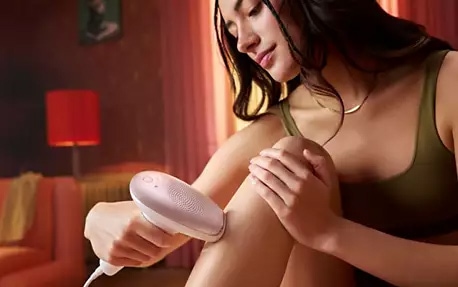
Which Philips Lumea is better for your needs?

It’s probably no secret that we all get holiday-ready in one way or another, whether it’s finding the perfect bikini, getting a tan, or removing body hair – it's all about personal preference! But if you’re looking for a more long-lasting way to remove body hair and get ready for your next trip, read on! In this article, we will explore everything you need to know to be summer-ready with our simple guide to travel hair removal, including: So, whether you want to know how to prep for IPL or other hair removal treatments, want advice to help you choose the right method for you, or want aftercare tips for post-hair removal while travelling keep on scrolling.
When it comes to being holiday-ready, some of us may choose to remove unwanted hair. But are you properly caring for your skin before and after hair removal? Here’s why skin care is so important and should be part of your routine for travel hair removal:
Preparing your skin before travel hair removal is key, especially if you’re planning to use a long-lasting method such as IPL. Here are our 6 top tips for how to prep for IPL:
As you prepare for summer, hair removal is probably on your to-do list ahead of your upcoming holiday. Here are our top 5 methods of travel hair removal:
IPL hair removal is a popular choice for individuals who want long-lasting results. If you’re looking for the best hair removal for a holiday, IPL could be the right choice for you. Often a more budget-friendly option than laser hair removal, IPL is most effective for those with lighter skin and darker hair.
Top tip: Using Philips Lumea IPL offers all-over hair removal thanks to the attachments suitable for different parts of the body. If you start your treatment plan early, you can see up to 92% hair reduction in just three treatments* and six months of ingrown hair-free smooth skin after 12 treatments** so you can be beach-ready for your holiday.
This more conventional method of hair removal is affordable, quick, and easy. When using this method, make sure you use warm water and shaving foam or gel to protect your skin.
Top tip: Trim, shave, or style your delicate areas with gentle care using the Philips Bikini Trimmer for hair removal while travelling. Complete with three combs for different lengths and styles and a rounded tip to protect the skin; this is the ultimate product for keeping everything neatly groomed on holiday.
Hair removal with wax can be done either in the comfort of your own home or by a professional. Even though waxing can be painful, it is one of the quickest methods of removing hair from your body.
Epilation should be done in the opposite direction to the direction in which the hair grows. By removing hair at the root, you ensure longer-lasting results.
Deciding on a quick and simple hair removal method that fits into your busy schedule is made easy with depilatory creams. However, these creams only provide temporary fixes, so be ready to repeat the process quite frequently.
Top tip: To protect your skin, always read the label before using any kind of hair removal cream and follow the instructions very carefully. Additionally, before using these products, it’s probably best to test them on a small part of your skin to prevent adverse reactions, especially if you plan to use them on large areas such as your legs and back.
So, can you do IPL in the summer? The answer is yes, but the post-treatment aftercare of any hair removal is key to protecting your skin – especially when the sun is shining! Here are our dos and don’ts for aftercare post-hair removal while travelling: And with that, you have everything you need to know to be summer-ready with the hair removal method of your choice. If you have questions like, “Can you do IPL in the summer?” We’ve got you covered, and if you want to know more about IPL, get all your questions answered in this article. * When following the treatment schedule, measured on legs, individual results may vary ** Median hair reduction on legs: 78% after 12 treatments